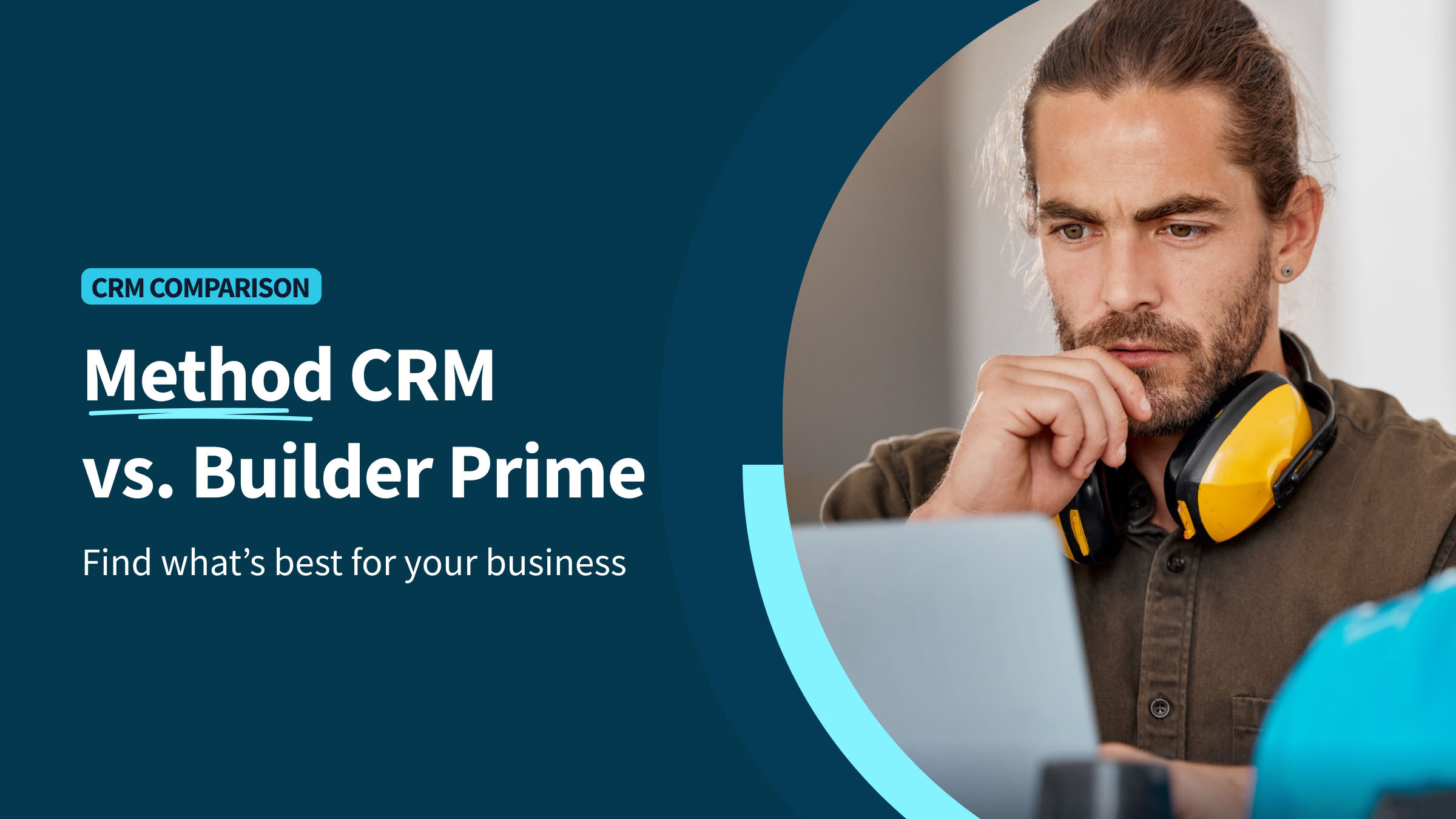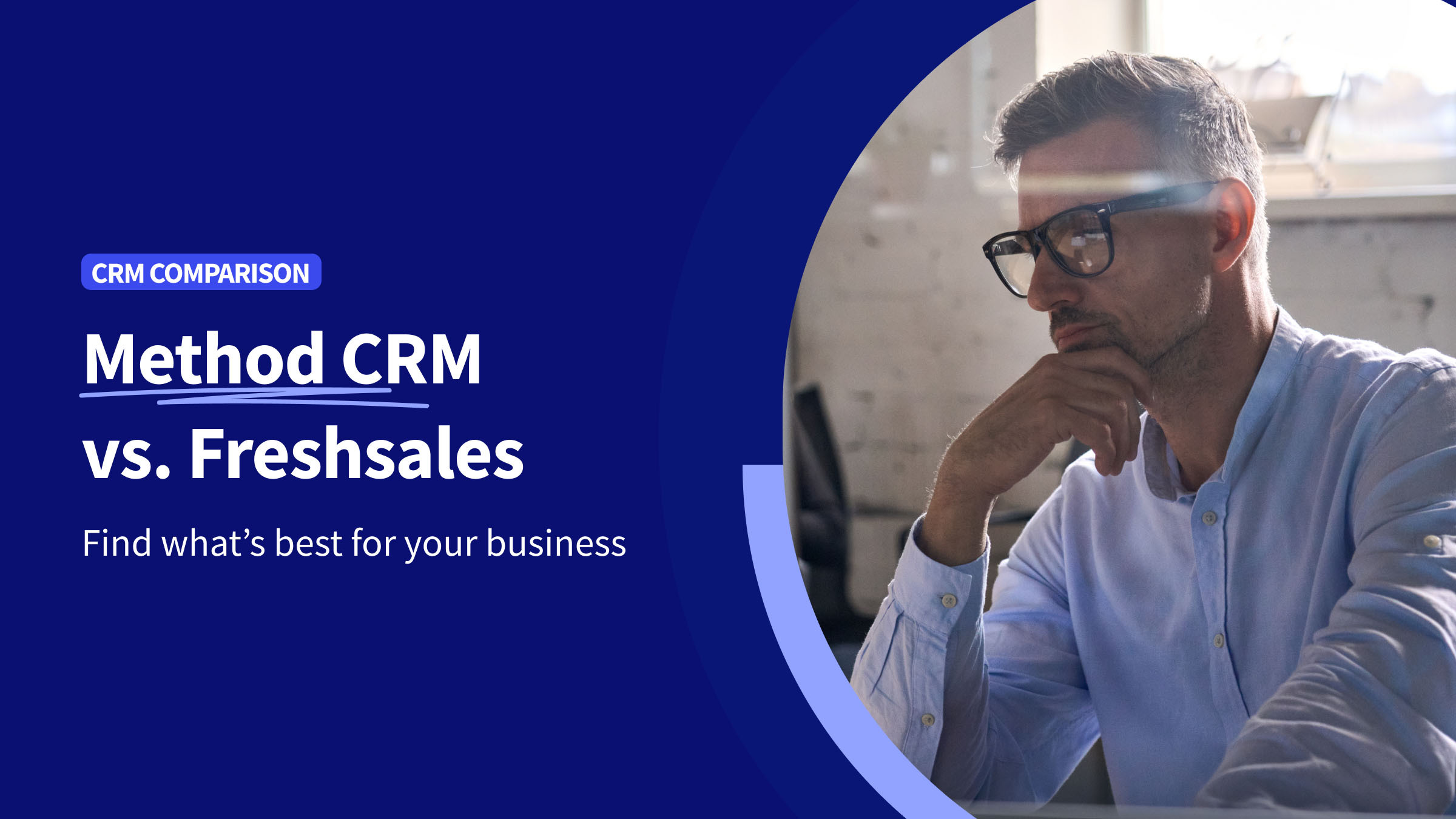Whether you’re a budding entrepreneur or a seasoned executive, understanding customer relationship management (CRM) is key to elevating your business.
In this blog, you’ll answer the question, “What is a CRM software?” You’ll do a deep dive into CRM software and learn all about:
- How it works.
- Its different types.
- The benefits it offers.
By the end, you’ll know how to choose the right CRM for your unique business needs.
Let’s get started!
What is a CRM software?
First, it’s important to answer the question, “What is a CRM software?” A CRM is a tool that is designed for customer relationship management.
It centralizes customer data to provide a unified platform that enhances business operations. It also optimizes customer experience, as you’re able to respond to customer needs more quickly.
While that’s the core purpose of a CRM, there are several different types that offer various functions.
Types of CRM software
Operational CRM
Operational CRM simplifies daily operations in:
- Marketing.
- Sales.
- Customer service.
It streamlines sales processes and automates repetitive tasks to boost efficiency. It accomplishes this in several ways. For example, an operational CRM:
- Efficiently manages leads to close more deals.
- Improves marketing campaign effectiveness.
- Supports efficient customer service.
Collaborative CRM
Collaborative CRM software lets your teams collaborate and sync information across departments. It ensures that teams have access to consistent, up-to-date customer information. As a result, you enhance team morale and your customer journey.
Analytical CRM
Analytical CRM helps you analyze and segment customer data to garner valuable insights into customer behavior and interaction history. As a result, you support strategic decision-making.
Your analytical CRM collects data from various customer interactions to make it easy to uncover patterns and trends. This information helps your business craft personalized marketing strategies.
Benefits of using CRM software
Now that you’ve learned what is a CRM, let’s look at its main benefits.
Better customer service
CRM software offers quick and easy access to a customer’s history and preferences, which optimizes customer service and support. With a more personalized approach, you satisfy customer needs and build stronger relationships.
Moreover, some CRMs optimize service by offering tools like customer portals. These tools give your customers all-day access to support and resources.
Increased sales
CRM systems effectively monitor and manage leads. They ensure proper sales pipeline tracking, which enhances the likelihood of converting them into potential clients.
This is because a CRM simplifies your sales funnel and ensures that you don’t miss any opportunities. As a result, it boosts sales and revenue growth.
Improved customer retention
Through tracking customer activities and interactions, CRM tools help your company engage and nurture long-term relationships. This sustained engagement leads to increased customer loyalty and retention.
Detailed analytics
A CRM provides analytics and reporting features that give you critical insights into your operations. Even better, you get a deep dive into:
- Customer behavior.
- Sales trends.
- Marketing patterns — and much more.
Overall, this rich data gives your organization an advantage through better-informed decisions.
Higher productivity and efficiency
Imagine if you could automate your way to stress-free days. Well, with CRM task automation, you can.
It takes control of routine tasks to save you time and resources. As a result, this enhances overall business efficiency and reduces manual data entry.
Centralized database of information
CRM systems store and centralize all customer-related information into a unified database. Coupled with collaboration features, this ensures that your team members always work with the same, up-to-date information.
Automated sales reports
CRM software also automates the process of generating sales reports. This saves valuable time and provides consistent, accurate data on your sales pipeline for analysis.
More accurate sales forecasting
CRM tools provide accurate sales forecasting tools to analyze past trends and organize customer data.
Using historical data, CRM tools help you predict future sales trends to plan more effectively and strategically.
Who should use a CRM?
To better understand who should use a CRM, it’s useful to revisit the question, “What is a CRM?” once more. CRM software is a versatile tool that benefits any business looking to:
- Enhance customer interactions.
- Simplify sales processes.
- Make more informed, data-driven decisions.
With this in mind, a CRM is particularly useful for businesses that want to track their interactions comprehensively and nurture long-term customer relationships.
How does CRM software work?
Data collection and storage
From contacts to accounts and transaction history, CRMs efficiently gather, organize, and store data from various customer interaction points, such as:
- Emails.
- Social media.
- Customer service inquiries.
This creates a rich and comprehensive database of customer information, all conveniently located in one place.
Creating customer profiles
A CRM aids in segmentation and targeting. With this software, you can analyze and segment customer information to create detailed customer profiles. These profiles include:
- Preferences.
- Purchase history.
- Phone or video calls.
- Interaction logs.
As a result, this lets you tailor your approach to individual people in your customer base.
Automating processes and workflows
One of the biggest considerations to make when answering the question, “What is a CRM?” is to note the power of automation.
CRMs automate various activities and repetitive tasks across several departments, from managing marketing campaigns to sending customer follow-ups. Workflow automation drives efficiency and lets your staff focus on more complex tasks.
Analyzing customer interactions and behaviors
CRM software tracks customer interactions across channels to give you valuable insights.
As your software analyzes data from various customer interactions, you can better:
- Understand customer preferences.
- Identify opportunities for your sales team.
- Craft targeted marketing strategies.
Integrating with other tools and services
The best CRM software integrates with other business tools and apps to enhance functions and data synchronization. This ensures a seamless information flow, which boosts your overall operational efficiency.
Key features of a CRM system
Contact management
A cornerstone feature, contact management lets companies store and manage information on all their contacts, including:
- Leads.
- Existing customers.
- Stakeholders.
- Team members.
This ensures that your information stays organized and accessible.
Lead management
CRM technology monitors and optimizes the lead management process — from the first call or contact all the way to conversion. It accomplishes this with lead scoring and automated workflows that prioritize and tailor engagement for effective conversion.
Sales forecasting
When it comes to sales forecasting, your CRM uses historical data and current trends to predict future sales. This helps you with:
- Setting realistic targets.
- Resource planning.
- Strategic adjustment.
Email integration
Your CRM must connect to your email platform of choice.
Email integration ensures that you can capture all email interactions with customers and store them in your CRM system. It lets your customer service and sales teams:
- Track the history of conversations.
- Monitor responses.
- Ensure timely follow-ups.
Plus, you can set up email templates and automated responses for common inquiries to save more time for value-added activities.
This integration also provides valuable data for email campaign management and analysis.
Interaction tracking
Interaction tracking in your CRM records every customer touchpoint for you to gain insights from. It offers a 360-degree view of the customer journey for improved service and tailored future interactions.
Document storage
CRMs allow for secure document storage and file sharing. They give your team centralized access to important files and documents like contracts and invoices — according to the rules and permissions you set.
Task management
In a CRM, task management enhances productivity, as it lets you create, assign, and track customer-related tasks and sales processes.
You can also use integrations with calendar tools and set up alerts to remind team members of deadlines and follow-ups.
Effective task management prioritizes activities so that you can focus your resources on the most impactful tasks and keep momentum in your sales cycle.
Analytics and reporting
A CRM’s analytics and reporting capabilities provide you with in-depth insights into your:
- Customer behavior.
- Sales performance.
- Overall business health.
Even better, you get customizable dashboards that offer real-time data visualization. This helps you understand key metrics quickly to make data-driven decisions.
With regular reporting, you’re aware of your strengths, weaknesses, and opportunities. With these in mind, you can make continuous improvements to your business.
What to consider when implementing a CRM solution for your business
Assessing your business needs and goals
Start by evaluating fundamental aspects of your organization, such as:
- Your business size.
- Customer base.
- Sales process complexity.
Then, identify your key challenges, like enhancing customer service or improving sales efficiency.
Finally, set clear, achievable objectives for your CRM, such as improving lead management or simplifying your marketing efforts. Make sure that these goals are measurable and attainable.
Choosing the right CRM software for your business
Select a CRM that matches your needs in areas like scalability and user-friendliness. Make sure it has essential features like:
- Contact management.
- Sales forecasting.
- Analytics.
Also, consider the benefits of cloud-based vs. on-premise solutions.
Finally, consider how your choice integrates with your existing tools and if it is customizable to fit business needs.
To get a better picture, take advantage of free trials of your top software choices before you make a financial commitment.
Setting up the software and training employees
Focus on efficient software setup, especially when it comes to data migration and system integration.
It’s a good idea to prioritize a comprehensive employee training program to get the most out of your CRM. Provide regular training sessions and support materials like user guides and video tutorials.
Make sure to continuously gather feedback, so you optimize your system and processes as your business grows.
Which CRM is best for your business?
The best CRM for your business depends on various factors, including your:
- Business size.
- Industry.
- Specific needs.
Small businesses often benefit from user-friendly, cost-effective solutions without the bells and whistles. When choosing a CRM, consider factors such as:
- Ease of use.
- Integration capabilities.
- Scalability.
- Customer support and ticketing.
Method is the #1 CRM for QuickBooks and Xero users. It boasts a powerful two-way sync with the accounting software and the ability to customize your entire software. The best part is that Method scales with you as you grow, without compromising on efficiency.
CRM pricing: How much will a CRM cost?
CRM pricing varies widely based on:
- Features.
- Scalability.
- Deployment method.
- CRM provider.
Small business CRM solutions start from as little as $25 to $50 per user per month for basic, cloud-based systems.
Mid-market solutions range from $50 to $150 per user per month and offer more advanced features that cater to large businesses.
Finally, enterprise-level systems easily exceed $200 per user per month. They provide extensive customization and functionality for larger corporations and enterprises.
Some CRMs also offer free versions with limited features. These are particularly suited for very small businesses and startups.
Pro-tip: When budgeting for a CRM, always consider additional costs for:
- Customization.
- Integration.
- Training.
What is a CRM frequently asked questions (FAQs)
Why is CRM data quality important?
Good CRM data quality ensures accurate analytics and enhances customer engagement. This is important for your business, as it leads to better business decisions and improved customer satisfaction.
Is WordPress a CRM?
No, WordPress is not a CRM. It’s a content management system. However, it does integrate with many popular CRM software solutions via plugins.
Is CRM just a database?
A CRM is more than a database. So, what is a CRM software? It manages your customer data, but also provides powerful tools for:
- Sales and marketing automation.
- Customer service.
- Reporting and analytics.
Your ideal CRM:
- Manages leads and sales pipelines.Facilitates team collaboration.
- Ensures data security and privacy and provides user access controls.
- Lets you customize your entire software to your needs.
Supports mobile access for on-the-go teams.
Can CRM integrate with my existing systems?
Yes, the best CRM systems integrate with your other products, business tools, and systems. Some even offer social media integration.
Connecting with your other tools synchronizes your data and simplifies your workflows. Now, you no longer have to spend your time entering data twice and updating spreadsheets. All your changes update from one system to another.
Let Method do for you what pens, paper, and sticky notes just can’t. Watch Method in action.
Image credit: kucherav via Adobe Stock






